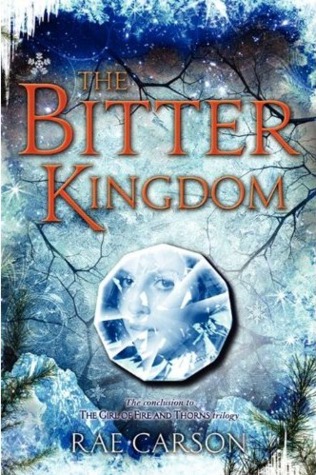When Diana Peterfreund came out with her futuristic re-imagining of Jane Austen’s Persuasion last year, For Darkness Shows the Stars, I highly enjoyed it. I was swept up in Eliot and Kai’s star-crossed love story, and it made me giddy and squishy in the way only Austen can.
So when I discovered there was to be a companion novel — not a sequel, but another story set in the same world, this time to the tune of The Scarlet Pimpernel, I was anxious to read it. And fortunately, a friend graciously offered to let me borrow her ARC (which…I have not yet returned. She had life things and then I had life things and what I’m saying is, Friend, if you want your ARC back, let’s do coffee).
Across a Star-Swept Sea does not pick up where the first book leaves off, and you don’t have to have read FDStS to enjoy it…but I’d still recommend first things first. It’ll be better that way.
The Plot (from Goodreads):
Centuries after wars nearly destroyed civilization, the two islands of New Pacifica stand alone, a terraformed paradise where even the Reduction—the devastating brain disorder that sparked the wars—is a distant memory. Yet on the isle of Galatea, an uprising against the ruling aristocrats has turned deadly. The revolutionaries’ weapon is a drug that damages their enemies’ brains, and the only hope is rescue by a mysterious spy known as the Wild Poppy.
On the neighboring island of Albion, no one suspects that the Wild Poppy is actually famously frivolous aristocrat Persis Blake. The teenager uses her shallow, socialite trappings to hide her true purpose: her gossipy flutternotes are encrypted plans, her pampered sea mink is genetically engineered for spying, and her well-publicized new romance with handsome Galatean medic Justen Helo… is her most dangerous mission ever.
Though Persis is falling for Justen, she can’t risk showing him her true self, especially once she learns he’s hiding far more than simply his disenchantment with his country’s revolution and his undeniable attraction to the silly socialite he’s pretending to love. His darkest secret could plunge both islands into a new dark age, and Persis realizes that when it comes to Justen Helo, she’s not only risking her heart, she’s risking the world she’s sworn to protect.
In this thrilling adventure inspired by The Scarlet Pimpernel, Diana Peterfreund creates an exquisitely rendered world where nothing is as it seems and two teens with very different pasts fight for a future only they dare to imagine.
My Thoughts:
The setting for Across a Star-Swept Sea is far removed from the Luddite estate of For Darkness Shows the Stars. The citizens of Albion and Galatea believe they alone survived the Reduction, but the two islands have very different ideas of how to move forward afterward, and each character in the story believes their way is the right one.
There are two main points of view, Justen and Persis, but several secondary characters get a bit of time in the POV spotlight as well, giving us every side of the conflict. The book plunges headlong into the science and politics that propel the revolution in New Pacifica, and the rebellion led by the Wild Poppy. The plot is smart and doesn’t coddle — there’s a lot of world-building and political set-up in the opening chapters, and that complex wider conflict sets the stage for the more intimate, personal conflict of the characters.
Though Justen and Persis team up almost right off the bat, Justen has no idea who she is — not as a spy, and not as a person — and spends the vast majority of the book believing she’s as vapid and shallow as she appears. Meanwhile, Persis has more than a few misconceptions about Justen as well. The false impressions carry us most of the way through the story, which normally I would find galling, but when you are reading a book based on The Scarlet Pimpernel, it’s kind of what you signed up for.
I enjoyed the characters in this story, maybe Justen a bit more than Persis simply because her Persis Flake act started to grate after a while. It was the point (and Persis was sick of it, too), but gave Justen a slight edge. As for the supporting cast, I enjoyed most of them, and was glad that we got to see perspectives of people on both sides of the conflict and from all the different social classes. It gave the story a good bit of variety and texture. I have to admit, though, I became the most invested when some familiar faces from For Darkness Shows the Stars showed up midway through the book. It was nice to revisit the characters I’d grown attached to in the first book and see how they interacted with the new characters in this unfamiliar setting.
Across a Star-Swept Sea isn’t as heavy on the romance as For Darkness Shows the Stars, though it certainly has its moments. Its plot relies more on intrigue and scheming, and so I found myself invested more in the fate of the people of New Pacifica, and Persis’ secret identity as the Wild Poppy, than the will-they-or-won’t-they between Justen and Persis. And really, that was enough, because that plot was interesting enough on its own. And I thought that was fitting, because it put my priorities in line with the characters, most of whom put the Revolution ahead of themselves. So the romance became a sweet dollop of icing on an already tasty cake.
If you’re a fan of both sci-fi and the classics, or if you read For Darkness Shows the Stars and want to revisit the post-Reduction world Diana Peterfreund created, or if you simply enjoy a smart futuristic tale populated with a variety of colorful characters, I’d recommend you pick up Across a Star Swept Sea.


